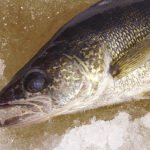Maybe it’s just the time of year, but something smells fishy in St. Paul. Perhaps it’s because the Legislature is in session, an annual occurrence that attracts all sorts of slimy bottom-feeders to the State Capitol. Then again, it just might be this so-called muskie bill that’s been introduced in the State Senate.
First, a full disclosure: I’ve never caught a muskie. I rarely fish in waters where they swim. I’ve little interest in becoming a muskie fisherman, but this has nothing to do with the fish. Frankly, when it comes to hunting and fishing, I already have enough bad habits; no need to add a muskie addiction to the list.
So why am I concerned about a so-called muskie bill? Well, I’m not sure this bill is really about muskies. Instead it appears to be a thinly disguised attack professional, science-based fisheries management and all anglers. As a license-buying Minnesota fisherman, I’m calling bull on this remarkably bad piece of legislation. So, what’s so bad about it?
For starters, let’s talk about muskies. Minnesota is arguably the best muskie fishing state in the nation. This is not an accident. Blessed with a wealth of lakes and rivers where muskies are native, Minnesota has long produced trophy-sized fish for anglers. Not surprisingly, the conservation organization Muskies, Inc. was founded in St. Paul in 1966 to support muskies and muskie fishing. Among its many accomplishments were the successful promotion of a catch-and-release ethic and rearing muskies for stocking in state waters.
The conservation ethic shared by virtually all muskie anglers has led to extraordinary fishing, where it is not uncommon in some waters to land muskies measuring more than 4 feet in length. However, when it comes to promoting the fishery, perhaps muskie anglers have over-reached. The statewide bag limit (excluding border waters) is one fish at least 54 inches in length; which is essentially catch-and-release. With encouragement from muskie anglers, the Minnesota DNR has an ongoing program to introduce muskies to new, suitable waters. And therein lies the rub.
Some folks, often lakeshore property owners on waters slated for new muskie stockings, worry that predacious muskies will eat other, desirable fish, such as walleyes. Fisheries biologists cite numerous studies showing the introduction of muskies doesn’t diminish populations of other game fish, but such science doesn’t deter those who oppose such introductions. But one might also observe that in this regard, the DNR may be its own worst enemy. From an aggressive, invasive species detection and enforcement program to an overall reluctance to stock fish in many waters, the DNR frequently communicates the message that introducing fish to new waters is a bad idea. Muskies seem to be an exception.
And then there is the catch-and-release aspect of muskie fishing. Many, make that most, Minnesota anglers like to have the opportunity to keep the fish they catch. You can bet that many a barstool conversation about muskies eating up all of the walleyes includes the line “and you can’t even keep a muskie!” You might even say that line is a battle cry for the anti-muskie crowd.
This background explains the vindictive aspects of the muskie bill. The bill would prohibit the stocking of muskie in new waters (any money saved from not stocking muskies would be earmarked for walleye stocking), allow muskies to be speared through the ice and, on yet undefined “nonmuskellunge waters where muskellunge are not indigenous or stocked by the DNR,” the minimum size limit would be reduced to 20 inches. So, in a state that can easily produce 40-pound muskies, this bill would make two-pounders legal game. It is hard to look at this bill and not think that its authors have a hate on for muskie anglers.
But the muskie bill doesn’t stop there. Read into it a little further and you can see the authors have a hate on for anyone who buys a fishing license in this state. When you get right down to it, this bill is nothing more than a smokescreen for a radical Wise Use agenda. Muskies are simply a stalking horse for an attempt to greatly diminish the DNR’s authority to manage our fisheries. Instead, the bill would shift fish stocking decisions to local authorities, namely the county boards of commissioners. According to a story in the Mar. 23 edition of Minnesota Outdoor News, the bill makes the DNR submissive to county boards. It said: “The DNR would need to comply with county resolutions requesting it: Stock waters with only particular species of fish; Limit stocking of particular fish species to a given amount or percentage of total stocking; Refrain from stocking waters with any fish.”
I don’t know about you, but I’m comfortable with having fish management decisions made by the DNR’s biologists, some of whom live in my community and have decades of monitoring and survey data for our local lakes. They are committed to providing good fishing, protecting the fishery and staying apprised of ecological conditions in a lake or a watershed. I don’t always agree with fish management decisions, but that’s ok. I don’t expect Minnesota lakes to be managed just for the benefit of me alone.
On the other hand, I don’t think state fisheries management authority should be relinquished to local county commissioners. Fish and wildlife resources are held in public trust by the state and thus belong to each and every Minnesotan. The same is true of our public waters.
That’s why I really question the motives of the authors of this so-called muskie bill. If they get away with passing this bill, what’s next? Maybe we can have the county boards set our deer seasons, sell timber in our state forests, designate our state snowmobile and ATV trails for “locals only” or some other such nonsense. Make no mistake. Anytime you hear politicians talking about “local control,” what they are really saying is that they want to give up public resources for the benefit of a greedy few. Somehow, these legislators have forgotten they were elected to look after the state’s resources for the benefit of all Minnesotans. In my book, that’s an inexcusable memory lapse.



